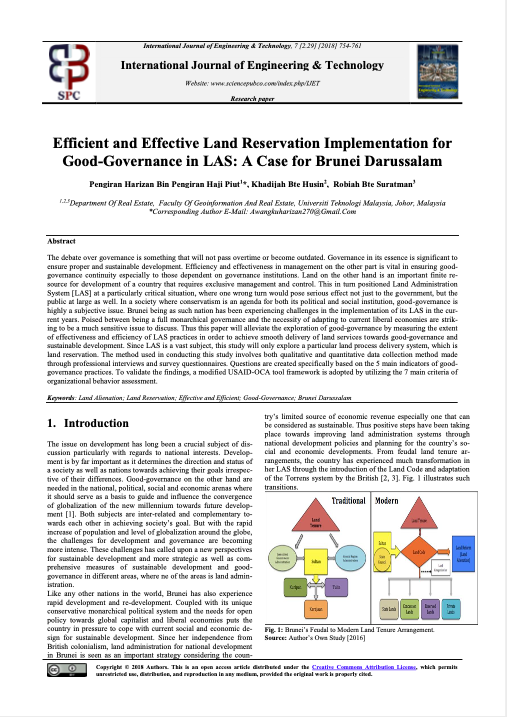Resource information
The debate over governance is something that will not pass overtime or become outdated. Governance in its essence is significant to ensure proper and sustainable development. Efficiency and effectiveness in management on the other part is vital in ensuring good-governance continuity especially to those dependent on governance institutions. Land on the other hand is an important finite resource for development of a country that requires exclusive management and control. This in turn positioned Land Administration System [LAS] at a particularly critical situation, where one wrong turn would pose serious effect not just to the government, but the public at large as well. In a society where conservatism is an agenda for both its political and social institution, good-governance is highly a subjective issue. Brunei being as such nation has been experiencing challenges in the implementation of its LAS in the current years. Poised between being a full monarchical governance and the necessity of adapting to current liberal economies are striking to be a much sensitive issue to discuss. Thus this paper will alleviate the exploration of good-governance by measuring the extent of effectiveness and efficiency of LAS practices in order to achieve smooth delivery of land services towards good-governance and sustainable development. Since LAS is a vast subject, this study will only explore a particular land process delivery system, which is land reservation. The method used in conducting this study involves both qualitative and quantitative data collection method made through professional interviews and survey questionnaires. Questions are created specifically based on the 5 main indicators of good-governance practices. To validate the findings, a modified USAID-OCA tool framework is adopted by utilizing the 7 main criteria of organizational behavior assessment.
Keywords: Land Alienation; Land Reservation; Effective and Efficient; Good-Governance; Brunei Darussalam

